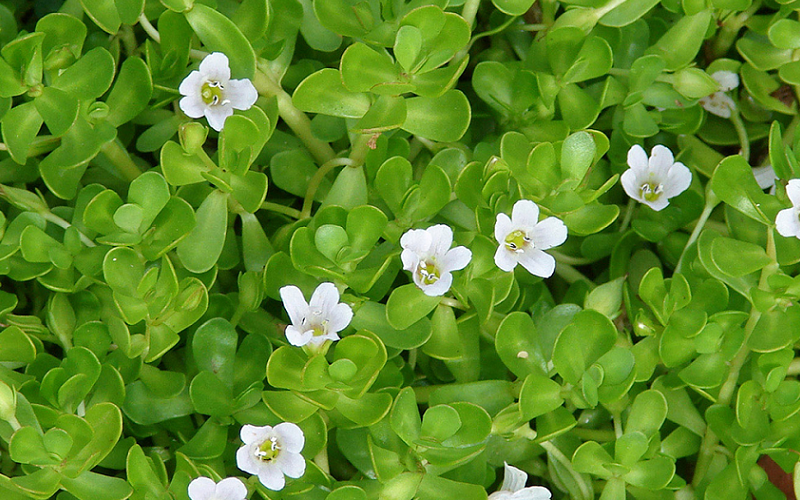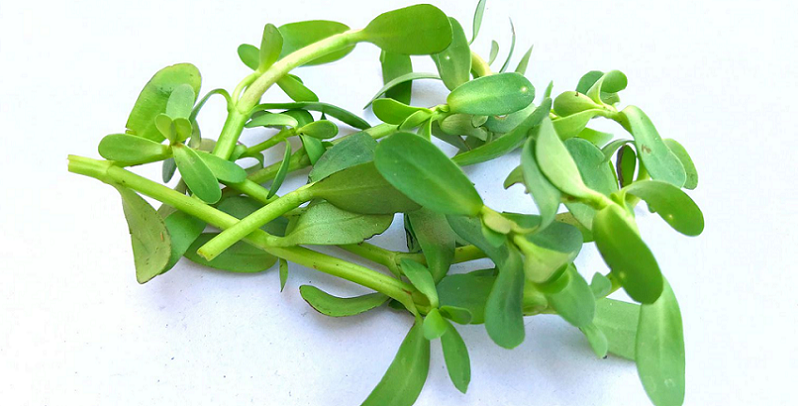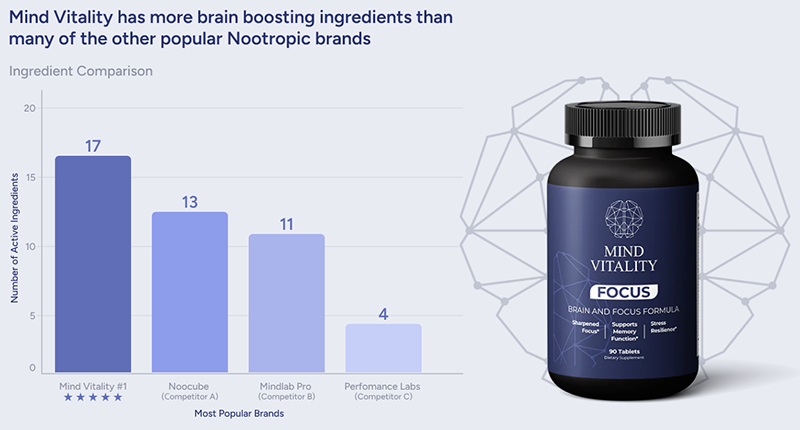
In the vast realm of nootropics, or brain-enhancing supplements, few herbs hold a history as rich and profound as Bacopa Monnieri. Deeply rooted in the ancient traditions of Ayurvedic medicine, this powerful plant has, for centuries, been touted as nature’s answer to cognitive enhancement and mental clarity. Yet, as the waves of time have brought scientific scrutiny, Bacopa Monnieri remains standing, bridging the wisdom of the ancients with the rigor of modern research.
Contents
- The Ancient History of Bacopa Monnieri
- Scientific Insights into Bacopa Monnieri’s Benefits
- How to Consume Bacopa Monnieri
- Incorporating Bacopa into Daily Wellness Routines
- References
The Ancient History of Bacopa Monnieri
Bacopa Monnieri, often simply referred to as Bacopa or Brahmi, is no newcomer in the world of traditional medicine. To truly appreciate the depth and breadth of this plant’s significance, we must travel back in time and immerse ourselves in the cultural and medicinal contexts from which Bacopa emerged.
Origin and Habitat of Bacopa Monnieri (Brahmi)
Native to the wetlands of Southern and Eastern India, Bacopa Monnieri thrives in marshy areas, giving it another common name: water hyssop. The delicate, small white flowers and fleshy leaves of the Bacopa plant belie its robust nature, enabling it to flourish in a variety of tropical and subtropical environments. While its origins lie in the Indian subcontinent, its value in traditional medicine has led to its cultivation and use in various parts of Asia.
Role of Brahmi in Ayurvedic Medicine
The traditional Indian system of medicine, Ayurveda, is where Bacopa Monnieri truly shines.
Traditional Uses of Brahmi
Historically, Bacopa was highly revered in Ayurveda for its potential to improve memory and cognition. Practitioners often recommended it to scholars and students to enhance their memorization capacity and sharpen their intellect. Beyond cognitive support, it was also utilized to alleviate symptoms of anxiety and treat insomnia, reflecting its versatile applications in holistic well-being [2].
Significance in Memory and Cognitive Functions
The Sanskrit name “Brahmi,” commonly used for Bacopa Monnieri, is derived from “Brahma,” the Hindu god of creation. This association with Brahma underscores the plant’s perceived ability to stimulate the mind and expand consciousness. Ancient texts describe Bacopa as a rejuvenator for the mind, often suggesting it for meditation practices to promote clarity of thought and profound introspection.
Other Traditional Systems that Employed Bacopa
Bacopa Monnieri’s prominence wasn’t confined to Ayurveda alone.
Various traditional systems across Asia recognized and incorporated Bacopa in their therapeutic practices. In traditional Thai medicine, for instance, Bacopa was used to treat a range of conditions, from mental fatigue to hair loss. In neighboring Sri Lanka, its potential in treating epilepsy and asthma was explored.

Scientific Insights into Bacopa Monnieri’s Benefits
While Bacopa Monnieri’s storied past in traditional medicine paints a vivid tapestry of its importance, the modern era beckons for rigorous scientific exploration. Fortunately, the last few decades have witnessed burgeoning interest in this ancient herb, with researchers keen on elucidating the mechanisms behind its acclaimed benefits. The findings from various studies have provided substantial support to many of the claims posited by ancient practitioners.
Memory and Cognitive Enhancement
One of the primary arenas where Bacopa Monnieri has been intensely studied is its potential to bolster cognitive faculties.
Clinical Trials and Findings
Multiple double-blind, randomized controlled trials have been conducted to investigate Bacopa’s effect on human cognition. In a notable study, participants who consumed Brahmi extract showed significant improvement in memory retention and acquisition when compared to those on a placebo. Another study involving elderly subjects indicated enhanced spatial learning and ability to process visual information after consistent Bacopa intake [2].
These findings aren’t just limited to the elderly or those with cognitive impairments. Even healthy adults demonstrated improved information processing speed and verbal learning abilities after a course of Bacopa supplementation.
Proposed Mechanisms of Action
So, how exactly does Bacopa work its magic on the brain? While the full spectrum of its mechanisms remains a topic of ongoing research, several theories hold prominence. Brahmi is believed to modulate brain neurotransmitters, particularly serotonin and dopamine, which play pivotal roles in mood, memory, and motivation. Additionally, it promotes the growth of nerve endings, or dendrites, enhancing neural communication. Furthermore, the presence of powerful compounds called bacosides in Bacopa is suspected to be responsible for its neuroprotective effects.
Neuroprotection and Anti-Oxidative Properties
Beyond cognition, Bacopa’s potential in shielding the brain from various threats has garnered attention.
Studies Supporting Neuroprotective Benefits
Research indicates that Bacopa might offer protection against degenerative brain diseases. In several animal models, Bacopa extracts have shown promise in mitigating the progression of Alzheimer’s disease. This protection is believed to be conferred through a reduction in amyloid deposits in the brain, a hallmark of Alzheimer’s.
Bacopa’s neuroprotective capabilities don’t stop there. It’s also been observed to shield neurons from damage following exposure to toxins, suggesting a broader role in maintaining brain health.
Impact on Reducing Oxidative Stress in the Brain
Oxidative stress is one of the adversaries of a healthy brain, leading to neuronal damage and accelerated aging. Brahmi’s rich antioxidant profile offers a potent defense against this. Bacosides, the primary active compounds in Bacopa, have demonstrated a capability to neutralize free radicals, thereby reducing oxidative damage in neural tissues.
Mood Regulation and Anxiety Reduction
Bacopa’s influence isn’t just limited to cognitive functions and neuroprotection; its effects on mood and emotional well-being are equally noteworthy.
Research Indicating Mood Enhancement
Clinical trials have shown that consistent Bacopa intake can lead to reduced levels of cortisol, the stress hormone. As a result, individuals report enhanced mood and a greater sense of calm. This aligns with traditional uses of Bacopa in Ayurveda, where it was recommended for emotional balance and serenity [3].
Role in Managing Stress and Anxiety
Bacopa’s adaptogenic properties empower the body to better cope with stress. Studies involving participants undergoing cognitive stress tests revealed that those on a Brahmi regimen showcased a marked reduction in anxiety levels. This could be due to Bacopa’s potential in modulating neurotransmitter activity, specifically serotonin, which plays a pivotal role in mood stabilization.
How to Consume Bacopa Monnieri
With a burgeoning understanding of Bacopa Monnieri’s myriad benefits, the logical next step is to explore how one can effectively incorporate this powerhouse herb into their wellness routine. The ancient traditions and modern market offer a variety of consumption methods, each with its unique merits and considerations.
Traditional Methods of Consumption of Bacopa
Bacopa Monnieri, having been cherished for millennia, was consumed in several straightforward, yet effective, ways in ancient times.
Fresh Leaves and Teas
In many regions where Bacopa grows naturally, the fresh leaves were often consumed directly, either chewed or incorporated into salads. The slightly bitter taste of Brahmi leaves was considered refreshing by many. Another popular method was to steep the leaves in hot water, producing a therapeutic tea. This warm infusion was not only believed to carry the cognitive benefits of Bacopa but was also seen as a calming nightly ritual to promote restful sleep.
Powders and Pastes
Crushing dried Bacopa leaves yielded a potent powder, often referred to as “Brahmi powder” in Ayurvedic practices. This powder could be mixed with water or other mediums to form a paste, which was then consumed directly or applied topically for various skin conditions. Additionally, the powdered form was sometimes encapsulated in plant-based capsules or blended with other herbal powders to create comprehensive health formulations [4].
Modern Forms of Bacopa Supplements
With the globalization of traditional herbs and the advancements in extraction technologies, modern consumers have access to a range of Bacopa products tailored for convenience and potency.
Bacopa Capsules and Tablets
Today, one of the most prevalent forms of Bacopa consumption is through standardized extract capsules or tablets. These are formulated to ensure a consistent dose of the active compounds, primarily bacosides. Capsules provide an easy-to-consume option, especially for those who might find the natural taste of Brahmi off-putting.
Tinctures and Liquid Extracts
Liquid extracts or tinctures are another modern rendition of Bacopa supplementation. These concentrated liquid forms allow for easy dose adjustment and can be mixed with water, juice, or teas. Some individuals prefer tinctures due to their rapid absorption and the ability to bypass any digestive breakdown that might occur with capsules.
Considerations for Optimal Absorption
Regardless of the chosen form, the efficacy of Brahmi can be influenced by factors like diet and timing. For instance, Bacopa is fat-soluble, meaning its absorption can be enhanced when consumed with a fatty meal or a source of healthy fats like coconut oil or avocado.
Bacopa Dosage and Recommendations
The age-old adage, “too much of a good thing can be bad,” holds true for Bacopa as well. Hence, understanding appropriate dosages is crucial.
Typical Bacopa Dosage Ranges
For cognitive benefits, research typically points to a dosage range of 300-450 mg daily of a Bacopa extract standardized to 55% bacosides. However, the optimal dose can vary based on individual factors like age, body weight, and specific health goals.
Bacopa Side Effects and Precautions
While Bacopa is generally well-tolerated, some individuals might experience gastrointestinal discomfort, dry mouth, or fatigue, especially at higher doses. It’s always prudent to start with a lower dose and gradually increase, monitoring for any adverse reactions. Pregnant or nursing mothers, as well as those on medications or with existing medical conditions, should consult a healthcare professional before beginning a Brahmi regimen [5].

Incorporating Bacopa into Daily Wellness Routines
Harnessing the multifaceted benefits of Bacopa Monnieri is not merely about consuming it; it’s about thoughtfully integrating it into a holistic wellness regimen. Just as a musician adds a new instrument to an orchestra to enhance the symphony, Bacopa can amplify and harmonize various aspects of daily health practices.
Synergy with Morning Rituals
The way you start your day can profoundly influence the trajectory of your mood, productivity, and overall wellness.
Bacopa Teas and Morning Meditation
Combining the calm-inducing properties of Bacopa with morning meditation can set a tone of tranquility for the day. Steeping a warm cup of Brahmi tea while engaging in deep breathing or mindfulness exercises can help center the mind and cultivate an internal space of clarity and focus.
Bacopa Smoothies for a Cognitive Boost
For those who prefer a more nutritious kick-start, blending Bacopa powder or liquid extract into a morning smoothie can be ideal. Pairing Brahmi with brain-boosting foods like blueberries, spinach, and walnuts, along with a touch of healthy fats such as almond butter or flaxseeds, can optimize its absorption and efficacy.
Integrating Bacopa into Work and Study Routines
Given Bacopa’s revered status in enhancing cognitive functions, it’s a natural ally in endeavors demanding mental agility.
Scheduled Bacopa Breaks
Incorporate periodic ‘Bacopa breaks’ during prolonged work or study sessions. Consuming Brahmi as a tea or in capsule form, combined with a short walk or stretching, can rejuvenate the mind, counteracting fatigue and bolstering concentration.
Bacopa and Brain-Training Activities
Taking Bacopa just before engaging in brain-training exercises or puzzles can potentially amplify cognitive gains. Whether it’s a game of Sudoku, a language-learning app, or a memory challenge, Bacopa can be a valuable companion in these cerebral pursuits.
Evening Relaxation and Sleep Enhancement Using Bacopa
The tranquility-promoting properties of Bacopa have made it a cherished aid in nightly routines across cultures.
Bacopa-infused Bedtime Drinks
Creating a nighttime drink with Bacopa can foster relaxation and prepare the mind for restful sleep. Mixing Brahmi powder with warm almond milk, a touch of honey, and a sprinkle of turmeric can result in a soothing concoction, marrying both taste and therapeutic value.
Pairing with Gentle Evening Yoga
Gentle yoga poses, when coupled with the calming effects of Bacopa, can significantly enhance sleep quality. Consider consuming Bacopa in your preferred form before a session of evening yoga to deepen relaxation and foster a serene transition into slumber.
Combining Bacopa with Other Nootropic Herbs
Bacopa, while powerful in its own right, can also be harmonized with other brain-boosting herbs to create a symphonic blend of cognitive support.
Bacopa and Ginkgo Biloba
Ginkgo Biloba, another revered nootropic herb, works to enhance blood flow to the brain. When combined with the neuroprotective properties of Brahmi, the duo can offer comprehensive support for memory and cognition.
Bacopa and Ashwagandha
Ashwagandha, like Bacopa, has its roots in Ayurveda and possesses adaptogenic properties. Together, they can amplify the body’s resilience to stress and foster emotional balance.
References
[1] Effects of a Standardized Bacopa monnieri Extract on Cognitive Performance, Anxiety, and Depression
[2] The Neurocognitive Effects of Bacopa monnieri
[3] Bacopa Monnieri: Dietary Supplements for Brain Health
[4] Bacopa Monnieri
[5] Bacopa monnieri and Their Bioactive Compounds

